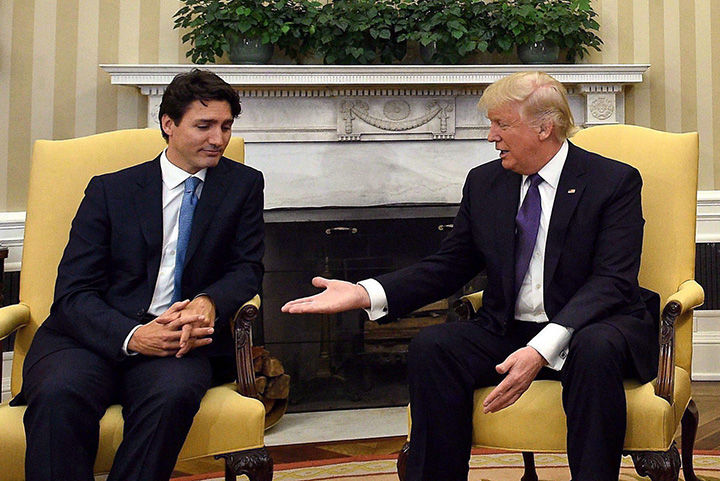Prime Minister Justin Trudeau says there are several reasons he could choose to not accept a renegotiated North American Free Trade Agreement (NAFTA).

In an interview with local Winnipeg radio host Geoff Currier of AM680 CJOB, Trudeau was asked whether he is still optimistic that negotiators can reach a deal on NAFTA and whether there is a point at which he would be willing to walk away.
“There are multiple issues at which point we will not accept a deal,” said Trudeau.
WATCH: There’s a sense of slight optimism after the latest round of NAFTA negotiations. While Canada is pleased with the progress, the Americans want to pick up the pace (Jan 29).

“There have been people out there, including former prime minister Harper, who have said, ‘look, NAFTA is too important, you can’t walk away from it, you should accept a bad deal rather than no deal.’ I’ve been very clear that no, I’m not going to accept a bad deal.”
READ MORE: NAFTA negotiations making progress but pace needs to pick up, U.S. says
Canada, the United States and Mexico are facing down a March deadline to renegotiate the 25-year-old deal, which allows for the free flow of goods between all three countries.
U.S. President Donald Trump vowed to tear up NAFTA during his 2016 election campaign and all parties to the deal agreed to try to reach a new deal shortly after his inauguration in January 2017.
There have since been six rounds of negotiations, most recently one held last week in Montreal that was supposed to be the final one.
WATCH: Kathleen Wynne says auto sector glad NAFTA negotiations ongoing, ‘most important’ to industry

However, two more rounds have been announced as negotiators try to work out several sticking points and “poison pill” proposals put forth by the Americans.
Those include higher quotas on the percentage of automobile parts that would have to be manufactured in the U.S., a sunset clause on the deal and a dumping of the dispute resolution process currently included in NAFTA that allows companies with complaints under the deal to take their concerns to the World Trade Organization.
Trump would rather see the deal require companies to take their complaints to the U.S. Commerce Department, which could be more inclined to rule in favour of American business interests.
While Foreign Affairs Minister Chrystia Freeland has said the government is willing to explore more “creative” options in order to resolve some of the stickier points of the negotiations, Trudeau says officials are pushing the Americans to understand that Canada will not accept bad terms just to keep a deal in place.
“We’ve pushed our American partners on this and they understand that right now,” he said, noting he remains optimistic a deal can be reached.

WATCH ABOVE: Donald Trump gives first State of the Union address (full)
Last night, Trump railed against “unfair trade deals” in his State of the Union address.
He did not mention NAFTA by name but said the U.S. had signed on to too many deals “that sacrificed our prosperity and shipped away our companies, our jobs, and our nation’s wealth.”
Trump also said he would push to negotiate trade deals that “will protect American workers and American intellectual property, through strong enforcement of our trade rules,” and hailed the end of what he termed “the era of economic surrender.”
That speech came just hours after former prime minister Brian Mulroney gave a passionate defence of NAFTA before the U.S. Senate Committee on Foreign Relations.








Comments